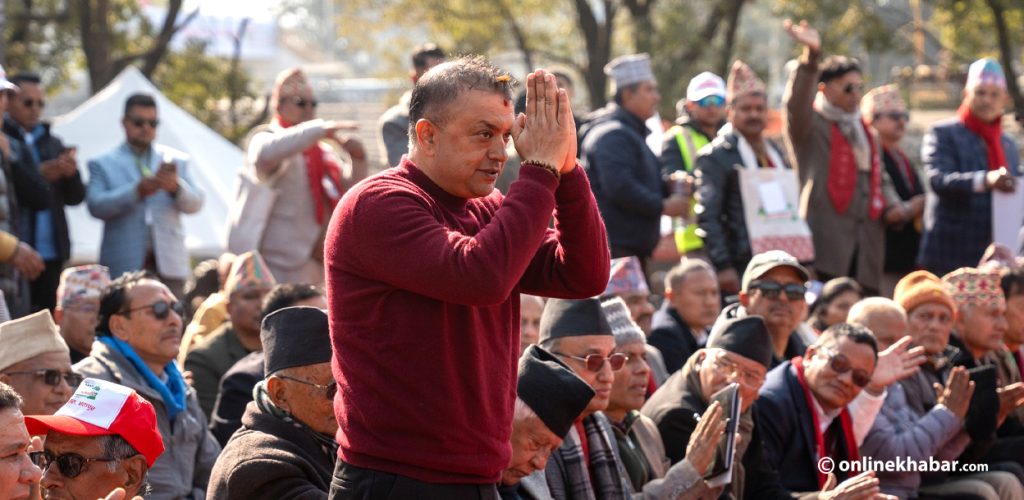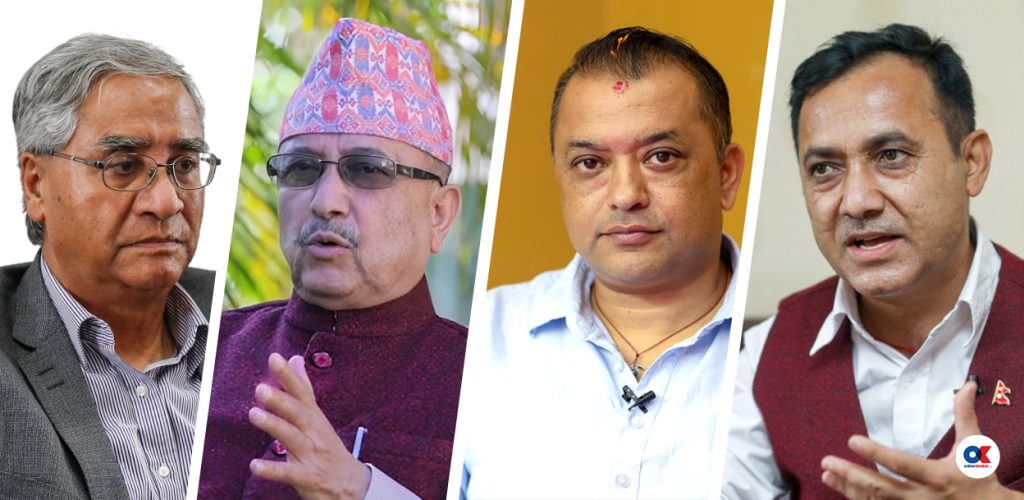
One after other blunders in Nepal’s diplomacy are dismantling the art and practice of balanced and constructive diplomacy. Nepal needs pull off through negotiation and communication to peacefully resolve disputes and to promote national interest. It is a primary substituent for conflict, using dialogue, communication, and compromise as its main tools.
Nepal is not in condition to use different approaches to conflict resolution, mainly categorised as power-based approaches relies on the use of economic strength, political influence, legal authority, and coercive pressure or threats to achieve outcomes. While it may achieve short-term results, it often lacks the foundation for long-term cooperation and trust. Comprehensive Peace Agreement (CPA), 2006 framework seems outdated in the peril of new conflict arisen of Gen-Z movement.
The right-based approach, which depends on legal frameworks, contracts, agreements, judicial processes, and human rights principles to ensure fairness and justice. Finally, the interest-based approach is considered the most constructive and sustainable form of conflict diplomacy, as it emphasises open communication, negotiation, collaboration, problem-solving, and win-win solutions.
Only preventive approach helps build mutual trust, long-term partnerships, and peaceful relations between nations, promoting balanced and healthy diplomacy. The conventional understanding of peace has been as a one-time event and outcome. The need today is to change it and understand it as both process and outcome.
International relations and diplomatic community of Nepal should join hand with international community’s efforts should be intertwined towards the prevention and sustainable resolution of conflict and the building of lasting peace. Broader architect of preventive diplomacy supports the establishment of peaceful, just and inclusive society.
It can be through developing the capacities of individuals, institutions and organisations in the areas of conflict prevention, negotiation, mediation and reconciliation, peacekeeping, peacemaking and peacebuilding. At the moment restoration of the rule of law, preventing and countering extremist ideas regarding dissolvement of provinces, direct elected President or Prime-Minister.
But the empowerment and meaningful engagement of women and youth, as well as enhancing the peacemaking capacities of minorities, indigenous communities. Elected representatives and top-level bureaucrats should do serious work these communities should not face marginalization, to contribute to efforts to “leave no one behind”.
A glance to conflicting societies
More than 176,000 people have died in the Afghanistan during ongoing conflict for the 25 years. These figures include 51,000 civilians, 50,000 militants and 70,000 security forces. With turmoil and civil war going on for decades, making a democratic constitution after the takeover of the Taliban regime is very challenging.
Several attempts have been made to minimise incompatibility between Islam and democratic principles but Islamic laws are seen inharmonious with this equality for women. South Africa’s Constitution of 1996 is widely regarded as a model constitution in transforming apartheid into a democratic society.
The south African process of constitution making took time and phased course. It benefited from an interim constitution, as Nepal did during the Constituent Assemblies, that allowed the dialogue of transition to continue.
Recent communal and resource conflict during election in Kenya killed more than 4000 people in last decades. Kenyan process suggests to us that how the participatory process can be misused. At the extreme of cynicism by a determined elite group who is confident enough for takeoff of participatory process to conciliate granting substance in democracy.
From Yugoslavia’s collapse with case of ethnic cleaning at turn of the 21st century to East Germany to East European block tells the same story. The unification of Vietnam; division of Czechoslovakia and Korea, partition and repatriation of the Indian Subcontinent (India, Pakistan and Bangladesh) provide multiple lessons in political restructuring of states.
Lessons for Nepal
Any meaningful effort at reconstructing of the Nepali state cannot afford to forget the lessons these experiences tell us. Peacemaking through preventive diplomacy have success story of Nepal refers to special efforts, particularly aimed to reflect on the period of the decade-long Maoist conflict (1996-2006).
During this time, Nepal faced severe political unrest, social division, and widespread violence. Peacemaking efforts began when all major parties and the Government of Nepal, civil society and international actors realized that a military solution alone could not bring lasting peace. Through a series of dialogues, negotiation, and international facilitation, the Comprehensive Peace Accord (CPA) was signed in 2006, making a history for peace.
This agreement formally ended the armed conflict make the foundation for inclusive political transformation, disarmament, re-integration of 19,604 ex-combatants, of which 1,442 joined the Nepali Army, and the promulgation of a new constitution. Peace-making in Nepal was therefore not just about stopping the war, it was about transforming structural inequalities, promoting social justice, and ensuring presentation of marginalized groups in the new political system.
The growing complexity of world conflicts with newest technologies in many fields of Artificial Intelligence (AI) and social media platforms raises important questions about how peace can be achieved and sustained. Promoting peace requires collective action through dialogue, trust- building, and inclusive participation of all stakeholders.
Efforts must focus on preventing violence, addressing the root causes of conflict such as inequality, injustice, and resources competition, and supporting post-conflict recovery. Principal areas after Gen-Z movement, which is shortest rebel movement in the modern human history success to regime change, demanding some critical actions.
Which include straightening institutions, good governance with minimizing to end corruption, economic opportunities, employment for youth and accountability. Peace-building, therefore, now, is not one-time effort but a continuation process.
At Nepal’s current situation, it is clear that even though peace has been established but sustainable peace has not been achieved. The justice, inclusive development, and equal opportunities that people expected have not fully substantial. The Gen-z movement clearly reflects this dissatisfaction and frustration over nepotism reflects via Nepo-Kids and political and bureaucratic appointments, the unfair employment process and opportunities.
To prevent such situations and build lasting peace, multistakeholder engagement preventive diplomacy plays a crucial role. It helps identify potential conflicts early, encourages dialogue and consultation, and builds trust among diverse sections of societies. For Nepal, achieving sustainable peace now require is greater transparency in governance, active public participation at the local level, provincial and stronger commitment to preventive diplomacy as a tool for peace and stability.
Francis Fukuyama emphasised in his book ‘Political Order and Political Decay’ about the combination of making strong institutions and effective governance mechanisms that maintain stability and prevent disorder within a state. In Nepal, achieving such order requires not only institutional strength which travel through integration of preventive diplomacy in international relations, foreign policy and diplomacy.
Preventive diplomacy helps identify and address potential sources of conflict before that escalate, ensuring that institutional functions in a peaceful and inclusive manner. When preventive diplomacy is supported by accountable governance and public trust, it contributes to resilient political order where disputes are resolved through dialogue rather than violence.
Integrating preventive diplomacy within such a political framework is crucial to detect early signs of conflict, promote constructive dialogue, and strengthen trust between the state and citizens. Thus, Nepal’s path toward sustainable peace depends on combing institutional strength, good governance, and preventive diplomacy to maintain stability and address the crisis.





















